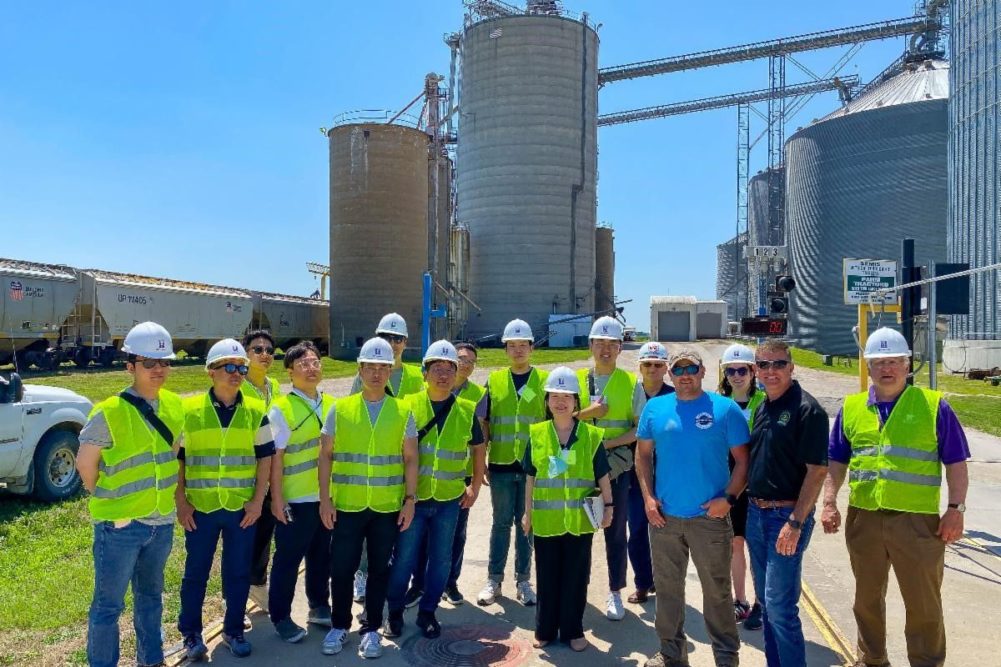MANHATTAN, KANSAS, US — Kansas State University’s International Grains Program (IGP) recently hosted 14 participants from the United States and South Korea for its Grain Export Supply Chain Expedition Course.
The course examined the export supply chain and its components at various sites across the United States. The expedition began in Chicago, Illinois, US, and concluded at an export location in Portland, Oregon, US.
Participants also visited farms, country elevators, rail and river terminal facilities, Mississippi and Illinois River locks and dams, intermodal and container loading facilities, and road, rail, and barge transportation companies.
The course also covered topics including grain marketing, feed ingredients, and presentations from various state and national commodity groups.
Course manager Guy Allen said the new course offers participants the opportunity to see where their grain comes from in person, while meeting industry professionals within the supply chain who can answer questions and provide specific information
“We designed this immersive course to have those buying US grains or those working in the government sector understand and experience the process from field to vessel,” said Allen, senior agricultural economist, IGP Institute at Kansas State University. “The participants completed the course after almost a week of travel across the country jam-packed with experiential learning.”
Yongzik Lee, grain trader for Posco International Corp., said he valued the time spent and information he gained through the course.
“The course was valuable in that we had the opportunity to visit every important stage of the grain supply chain in the United States, from a farm in Central Illinois and country elevators run by co-ops to the export terminal and marketing center,” Lee said. “I had prior knowledge of the grain supply chain in a general sense from books and lectures but visiting the sites and talking to real professionals conducting everyday operating and merchandising jobs was a completely whole new level.
“This is because not only could I learn how each type of facility works and operates in a technical sense, but I also got to know how each player, ranging from producer, merchant, and processor to state marketer, risk manager and dam operator interacted with one another, reacted to the market dynamics and, most importantly, efficiently merchandised their assets such as farmland, elevator, logistics, or anything.”
For more information about the course, contact Allen at the IGP Institute, 785-532-4070 or [email protected].






